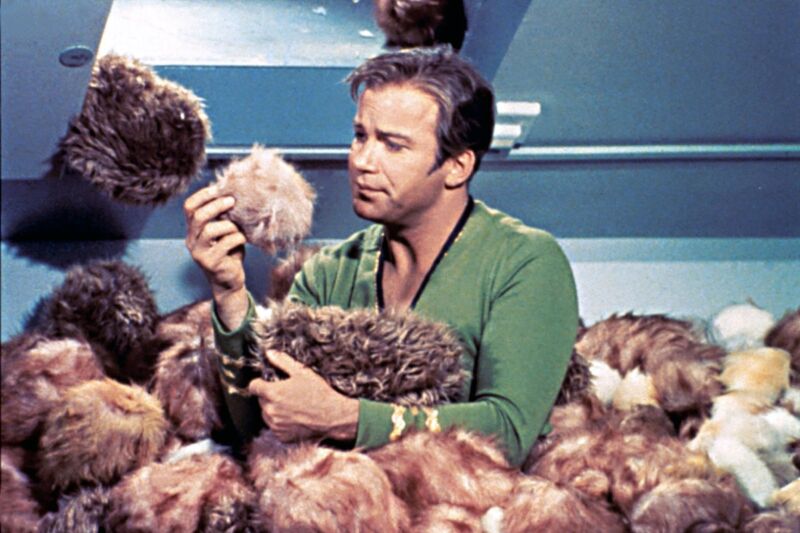Physics undergrads crunched numbers for Star Trek’s tribble problem

Enlarge / Captain James T. Kirk (William Shatner) is buried in adorable fluff balls in the classic 1967 episode, "The Trouble with Tribbles," on Star Trek: TOS. (credit: Paramount/CBS Television)
Chalk this one up to fun scientific papers we inexplicably missed last year. A group of undergraduates at the University of Leicester in the UK calculated the growth rate of the fictional Star Trek critters known as tribbles. They published their results in a short paper in the university's undergraduate-centric Journal of Physics Special Topics, estimating just how long it would take for there to be enough tribbles to fill up the USS Enterprise.
First aired on December 29, 1967, "The Trouble with Tribbles" episode was written by David Gerrold, then a 23-year-old college student in California. He originally envisioned it as a cautionary tale of ecological disaster-inspired in part by how quickly rabbits multiplied when they were first introduced to Australia in 1859, a region where they had no natural predators. However, over several rewrites, the tone evolved to incorporate more humor-much to the dismay of ST:TOS creator Gene Roddenberry, who thought the episode lacked gravitas. Roddenberry was ultimately proven wrong. The episode frequently ranks among the top ten best episodes of ST:TOS, if not the entire franchise.
In the episode, the Enterprise is charged with guarding a shipment of "quadrotriticale" grain to Sherman's Planet. While on shore leave, Lt. Uhura (Nichelle Nichols) is given a purring ball of fluff called a Tribble by interstellar trader Cyrano Jones (Stanley Adams) and brings it aboard the ship. The tribble quickly reproduces, and its offspring reproduce in turn.
Read 3 remaining paragraphs | Comments